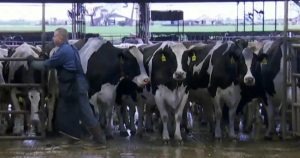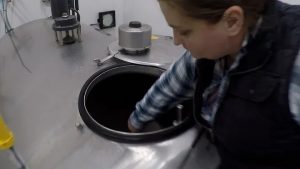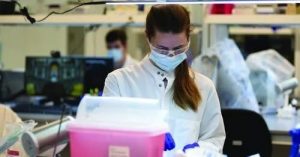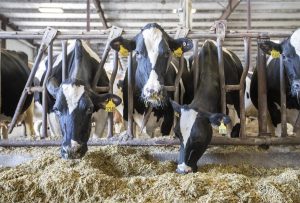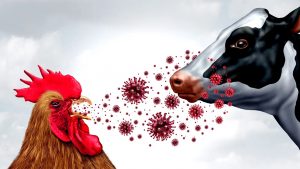
Animal disease unit of USDA has lost 16 per cent of staff.
Hundreds of veterinarians, support staff and lab workers at the animal health arm of the U.S. Department of Agriculture have left under the Trump administration’s push for resignations, according to three sources familiar with the situation, leaving fewer specialists to respond to animal disease outbreaks.
The departures come as the country battles its longest-ever outbreak of bird flu and faces the encroachment of New World screwworm, a flesh-eating pest detected among cattle in Mexico.
“With the decrease in USDA veterinary positions, there is concern that fewer veterinarians will be able to perform ongoing regulatory requirements, disease investigations, and response planning and preparation,” Kansas animal health commissioner Justin Smith said.
“This could result in slower response times and less responsiveness to local veterinary needs,” he added.
Egg prices set records this year after bird flu wiped out millions of laying hens. Cases have slowed in recent weeks, though experts warn outbreaks could flare up again during the spring and fall migratory seasons for wild birds that spread the virus.
More than 15,000 USDA employees have taken President Donald Trump’s financial incentive to quit, about 15 per cent of agency staff, as part of administration efforts spearheaded by billionaire Elon Musk to shrink the federal workforce.
In that exodus, the Animal and Plant Health Inspection Service, the agency that fights livestock diseases and pests that hurt crops, lost 1,377 staff. That represents about 16 per cent of APHIS employees, according to a Reuters analysis of data from the federal Office of Personnel Management.
About 400 of those leaving worked in the agency’s Veterinary Services arm, representing more than 20 per cent of its 1,850 staff, one source said. That branch works across the U.S. and globally with farmers to test animals for disease and control its spread.
The tally includes 13 of the agency’s 23 area veterinarians who oversee veterinary work across the country, according to a chart of staff departures seen by Reuters and a source familiar with the situation.
Also leaving are 20 -30 per cent of staff at one USDA lab that tests for animal disease like bird flu, a second source said.
Those remaining must have all purchases above $10,000 approved by Musk’s Department of Government Efficiency, potentially adding up to four weeks of delay, the source said.
The USDA did not respond to a request for comment.
‘A big deal’
The staff losses threaten APHIS’ ability to respond to bird flu, which continues to infect dairy herds and poultry, said three state veterinarians and three other sources.
Seventy people, mostly farm workers, have contracted the virus since 2024, and further spread raises the risk that bird flu could become more transmissible to humans, experts say. The U.S. Centers for Disease Control and Prevention says the risk to people from bird flu remains low.
Among other responsibilities, area veterinarians can support culling of infected poultry flocks and receiving of payments for their losses, said Beth Thompson, South Dakota’s state veterinarian.
“The federal government, they won’t have the number of people to be able to help out the states,” said Thompson, who had seen the chart of staff losses. “It’s a big deal.”
Thompson said USDA’s chief veterinarian, Rosemary Sifford, told her the agency will determine how to organize the remaining area veterinarians after seeing whether there are further departures.
Other APHIS departures include about half of its 69-person legislative and public affairs office, which handles correspondence with members of Congress, external groups and the press, including on issues like bird flu, according to another source.
In New Mexico, state workers are assuming additional duties after USDA support staff resigned, state veterinarian Samantha Holeck said.
“We won’t know the full impacts of these changes immediately,” she said. “The important thing is that we work together as a team through all of these challenges.”
You can now read the most important #news on #eDairyNews #Whatsapp channels!!!
🇺🇸 eDairy News INGLÊS: https://whatsapp.com/channel/0029VaKsjzGDTkJyIN6hcP1K







